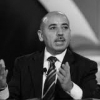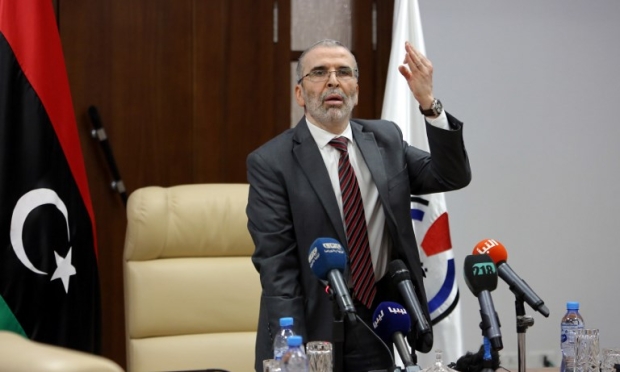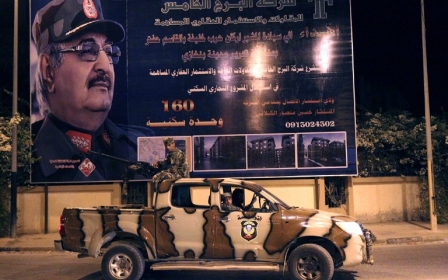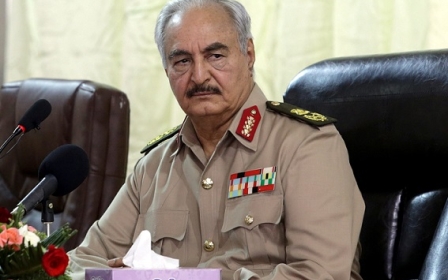Libya's huge riches could help bring an end to political violence

It may come as a surprise to many that despite the deep conflict and negative economic growth in the last three years in Libya, the state of the Libyan economy is much healthier than that of many other countries, including neighbouring ones.
The fundamentals of Libya's economy are strong, and the potential for achieving huge growth and high levels of prosperity are in place. Libya has hardly any external debts to international financial institutions, while other nearby countries recorded billions in debt in 2017, including Egypt ($67bn), Morocco ($47bn) and Tunisia ($28bn).
Fighting for Libya's wealth
Libya also has $67bn in national sovereign fund assets scattered internationally, which have been frozen by the UN since 2011. The country also possesses huge reserves of oil and gas, with crude oil reserves of 48 billion barrels - the largest in Africa and ninth-largest globally. Libya is also ranked fifth-highest in the world for recoverable shale oil reserves, estimated at 26 billion barrels.
Its various mineral reserves, which have not yet been mined on a commercial scale, include some very large gold reserves, especially in the south.
Yet, sadly, this huge wealth has been something of a curse for Libyans and a root cause of conflict. The rentier nature of the Libyan economy means that the state is the main source of income and wealth. This has led, in the absence of a social contract setting out a fair and peaceful wealth-sharing system, to Libyans taking up arms and violence, especially in the last three years.
The conflict has been essentially over who controls political power and, consequently, wealth.
The Libyan economy is in a much healthier position that that of neighbouring Tunisia and Egypt, who are shackled with high foreign debt, high unemployment and limited natural resources
Another intrinsic factor damaging the Libyan economy is a deep-rooted culture of corruption that eats up most government-allocated budgets. A lack of transparency and accountability mechanisms, along with the very weak institutional capacity to implement good governance policies, constitutes a major weakness and economic drain.
The violence in Libya has been fuelled by countries, near and far, who greedily want a share of its wealth. Conflict over the control of oil installations, including oil fields and export terminals, brought Libya's daily export of crude oil down to a mere 200,000 barrels per day (bpd) in 2014-15 from a high of 1.5 million bpd before that.
This sharp drop in oil exports caused foreign currency revenues to plummet and the Libyan dinar to lose value sharply against foreign currencies. Other effects included spiralling inflation, rising prices and a severe shortage of liquidity in the banks, resulting in the grave socioeconomic suffering of ordinary Libyans.
Signs of improvement
The conflict has also led, over the last three years, to a split in the most important economic institutions of the country: the Central Bank of Libya, the National Oil Corporation and the Libyan Investment Authority.
However, by the end of 2017, some economic factors started to appear more positive: Libya exported the most oil in four years in 2017, reaching around one million bpd, amid signs that an improving security environment was enticing some of the world's largest oil companies back to Libya.
Vitally needed hard currency from oil exports tripled in 2017 to $14bn, compared with $4.8bn in 2016. In a sign of fresh confidence, giants Royal Dutch Shell and BP recently signed annual deals to buy Libyan crude for the first time in years.
The Libyan central bank announced it would raise the annual amount of foreign currency available to each family member to $500 in 2018 from $400 in 2017. This has eased access to foreign currency at the much lower official exchange rate, compared with the almost-six-times-higher parallel black market rate.
But a recent crackdown on smuggling networks has been saving Libya hundreds of millions in state money lost to smugglers and their receiving customers outside the country.
Impacts on neighbouring countries
Another welcome development is the strengthening of the Libyan dinar by more than 50 percent against foreign currencies on the black market. The dinar has been helped by a hard currency influx from the central bank, as rising oil prices and boosted export revenue have relieved financial pressure on Libya.
The central bank has also channelled more money to importers since the start of the year, helping to lower the prices of goods and inflation.
Rising oil exports and crude prices are generating more foreign revenue for Libya, closer to pre-conflict levels. The real potential of the Libyan economy, however, comes from the huge natural wealth resources and the country's large frozen assets. Libya's lack of debts to international financial institutions gives it the freedom to adopt fiscal policies without international pressure or interference.
All of this should show Libyan factions that the prize for ending their conflict, leading to stability and unity, will be highly rewarding. Significant economic improvements would encourage ordinary Libyans to participate in planned elections, offering a glimpse of a light at the end of the tunnel.
The Libyan economy is in a much healthier position than that of neighbouring Tunisia and Egypt, who are shackled with high foreign debt, high unemployment and limited natural resources. Libya has, over the decades, attracted hundreds of thousands of Egyptian and Tunisian workers - and after the conflict ends, it could easily attract more, helping to boost their economies.
Egypt has strong leverage on some of the factions in the Libyan conflict, including General Khalifa Haftar, and could hold genuine sway when it comes to bringing about a political accord and peace. Geopolitically, a stable, prosperous Libya would be a great economic benefit to its neighbours and much less of a threat to their national security.
- Guma El-Gamaty is a Libyan academic and politician who heads the Taghyeer Party in Libya and is a member of the UN-backed Libyan political dialogue process.
The views expressed in this article belong to the author and do not necessarily reflect the editorial policy of Middle East Eye
Photo: Libyans wave their national flag at the Benghazi port, closed for three years due to rebel groups occupying the eastern Libyan city, during a ceremony marking its re-opening in October 2017 (AFP).
This article is available in French on Middle East Eye French edition.
New MEE newsletter: Jerusalem Dispatch
Sign up to get the latest insights and analysis on Israel-Palestine, alongside Turkey Unpacked and other MEE newsletters
Middle East Eye delivers independent and unrivalled coverage and analysis of the Middle East, North Africa and beyond. To learn more about republishing this content and the associated fees, please fill out this form. More about MEE can be found here.






